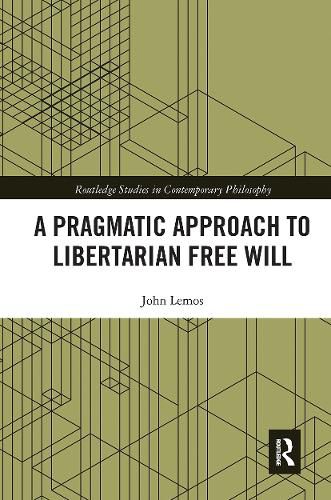Readings Newsletter
Become a Readings Member to make your shopping experience even easier.
Sign in or sign up for free!
You’re not far away from qualifying for FREE standard shipping within Australia
You’ve qualified for FREE standard shipping within Australia
The cart is loading…






A Pragmatic Approach to Libertarian Free Will argues that the kind of free will required for moral responsibility and just desert is libertarian free will. It is a source of great controversy whether such a libertarian view is coherent and whether we should believe that we have such free will. This book explains and defends Robert Kane’s conception of libertarian free will while departing from it in certain key respects. It is argued that a suitably modified Kanean model of free will can be shown to be conceptually coherent. In addition, it is argued that while we lack sufficient epistemic grounds supporting belief in the existence of libertarian free will, we may still be justified in believing in it for moral reasons. As such, the book engages critically with the works of a growing number of philosophers who argue that we should jettison belief in the existence of desert-grounding free will and the practices of praise and blame and reward and punishment which it supports.
$9.00 standard shipping within Australia
FREE standard shipping within Australia for orders over $100.00
Express & International shipping calculated at checkout
A Pragmatic Approach to Libertarian Free Will argues that the kind of free will required for moral responsibility and just desert is libertarian free will. It is a source of great controversy whether such a libertarian view is coherent and whether we should believe that we have such free will. This book explains and defends Robert Kane’s conception of libertarian free will while departing from it in certain key respects. It is argued that a suitably modified Kanean model of free will can be shown to be conceptually coherent. In addition, it is argued that while we lack sufficient epistemic grounds supporting belief in the existence of libertarian free will, we may still be justified in believing in it for moral reasons. As such, the book engages critically with the works of a growing number of philosophers who argue that we should jettison belief in the existence of desert-grounding free will and the practices of praise and blame and reward and punishment which it supports.